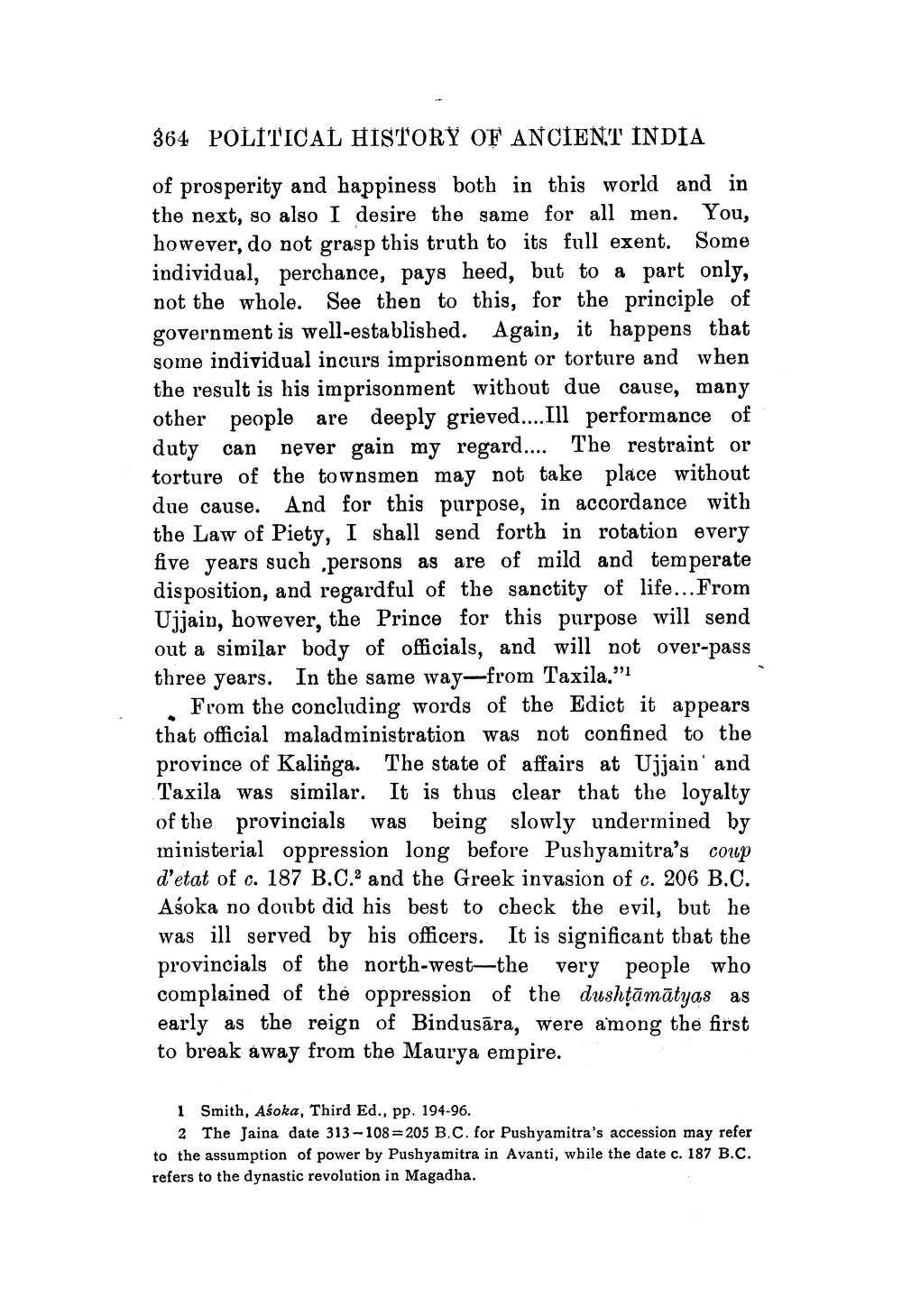________________
364 POLITICAL HISTORY OF ANCIENT INDIA
of prosperity and happiness both in this world and in the next, so also I desire the game for all men. You, however, do not grasp this truth to its full exent. Some individual, perchance, pays heed, but to a part only, not the whole. See then to this, for the principle of government is well-established. Again, it happens that some individual incurs imprisonment or torture and when the result is his imprisonment without due cause, many other people are deeply grieved....Ill performance of duty can never gain my regard.... The restraint or torture of the townsmen may not take place without due cause. And for this purpose, in accordance with the Law of Piety, I shall send forth in rotation every five years such persons as are of mild and temperate disposition, and regardful of the sanctity of life... From Ujjain, however, the Prince for this purpose will send out a similar body of officials, and will not over-pass three years. In the same way-from Taxila."!
From the concluding words of the Edict it appears that official maladministration was not confined to the province of Kalinga. The state of affairs at Ujjain' and Taxila was similar. It is thus clear that the loyalty of the provincials was being slowly undermined by ministerial oppression long before Pushyamitra's coup d'etat of c. 187 B.C.? and the Greek invasion of c. 206 B.C. Asoka no doubt did his best to check the evil, but he was ill served by his officers. It is significant that the provincials of the north-west-the very people who complained of the oppression of the dushțāmātyas as early as the reign of Bindusāra, were among the first to break away from the Maurya empire.
1 Smith, Asoka, Third Ed., pp. 194-96.
2 The Jaina date 313-108 = 205 B.C. for Pushyamitra's accession may refer to the assumption of power by Pushyamitra in Avanti, while the date c. 187 B.C. refers to the dynastic revolution in Magadha.




